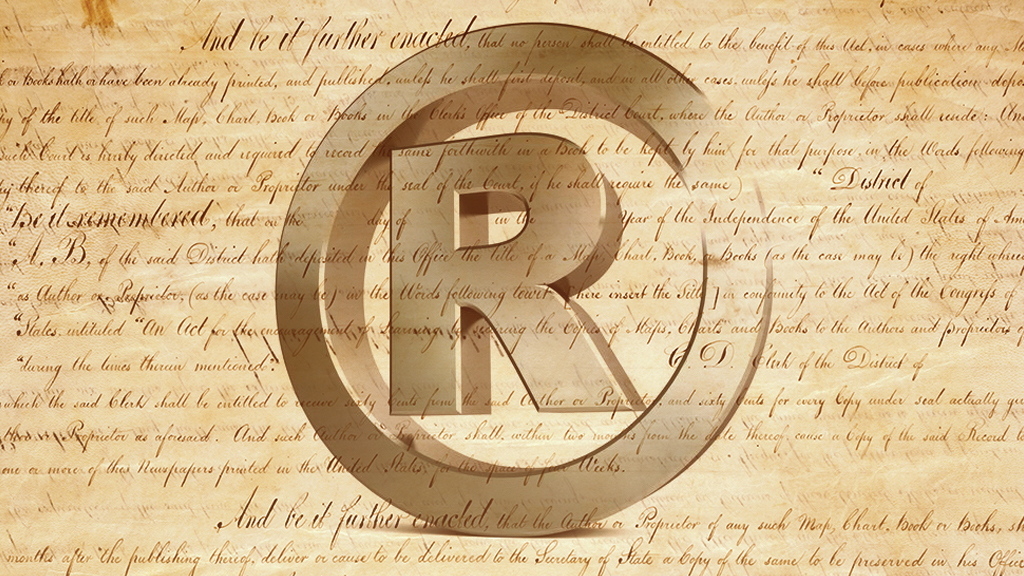The Floyd Law Firm PC helps business owners and entrepreneurs make the most of it through all stages of their business’s life cycle. From legal rights and regulations to daily operations – we provide experienced legal counsel and practical solutions to a wide variety of business and corporate problems. We work to protect your rights in and out of the courtroom. We are here to help you protect your business identity and our law firm can assist businesses and startups with Trademark Registration and Copyright Protection when needed.
Trademark law is important in legally preventing other individuals or companies from identifying themselves, or their products, as similar to what your business may provide. Competitors may sometimes try to imitate another who is more successful or reputable in the marketplace. One way this is done is by using a very similar name or logo in an attempt to confuse the consumer into thinking their product or service is the same, or as good as another.
Trademark law is the set of legal regulations and laws made to protect trademarks. A trademark may be given to any symbol, tagline, word, name, design, or logo used in commerce to identify the product or service of one business from another. The law thereby works to discourage those who aim to provide inferior services or products – by capitalizing on the average consumer’s inability to quickly discern any difference between similar business names, brands, or product designs.
Modern trademark laws that are in place today began to emerge during the late 19th century. The Lanham Act of 1941 led the way to the Trademark Act of 1946, and to the United States trademark laws currently in effect. There are common law trademark rights and registered trademark rights. Common law trademark rights are typically acquired naturally when a person or business uses a particular name or logo in commerce, and the rights are enforceable in state courts. Names, logos or marks registered with the United States Patent and Trademark Office have a higher degree of protection in federal courts.
Working with the experienced attorneys at The Floyd Law Firm, you will have the means to protect the image that you have worked so hard for. We will assist you with the entire process of filing to register your trademark. Your trademark is your identity and one of your business’s very important assets. It serves to symbolize your business’s role in the marketplace, and your reputation over the course of years that you have done business. Trademark applications can be delayed in the event that there is a refusal by the examining legal entity. Any opposition during the trademark registration period could lead to the application process being gridlocked. Our legal team will continuously monitor the process and quickly resolve any inquiries about your application for you.
Trademark registration applications are closely reviewed by one or more USPTO examining attorneys. This occurs approximately three to four months after the initial application filing. Upon review, the USPTO attorney is authorized to approve the trademark for registration and its official publication. If there is any question about your trademark application, the examiner may issue an office action – and a timely response is required – in order for your filing to avoid further delay. Such office actions could lead to a refusal to register your mark with the USPTO.
The verbiage used on every trademark registration application is key. Vague descriptions of the services or goods supplied, showing registration of the trademark in a variety of classes, registering a company logo when the intent was to register the words or tagline, and misuse of the terms “use in commerce” versus “intent to use” – could all cause needless delay, and your application may become subject to cancellation. A trademark registration application submitted with errors may not be made available for correction, and you will have to start the process over by filing a new application. Having an experienced attorney guide you through the process can help you save valuable time, as well as further expense, in the long run.
Upon the approval of the trademark registration application, the registration symbol of ® may be used. This symbol lets the public and business arena know that any unauthorized usage of your registered logo, design, phrase, or mark is infringement. You, as the trademark owner, will now be the sole authorized entity to utilize your mark in the United States – in conjunction with the services or products for which it has been registered.
Business Litigation Legal Services may include Trademark Infringement and Copyright Protection
Consumers and businesses mutually benefit when trademarks are properly used. Trademarks ensure the authenticity and quality of the product or service to the consumer, and protects the rights of the owner. False or incorrect use of a trademark is not only unlawful, but confusion or dilution in the use of the trademark by another entity is also an act of infringement. If substantial proof of the unlawful use can be provided, it can be brought forth as a legal claim.
Trademark infringement includes any unauthorized use of the service mark on goods, products – or in relation to services – in a way to confuse the buyer or consumer into believing that such goods or services are the same or similar to the trademarked brand. The successful outcome of a trademark infringement lawsuit relies on proving whether the misuse causes even a likelihood of confusion in the view of an average consumer.
Plaintiffs in a trademark infringement claim must be able to prove that they have rightful ownership interest in the mark. To prove ownership of a valid copyright, the plaintiff shall produce a copyright certificate or other documented history that establishes the date that the copyrighted material was created.
A trademark infringement case may be filed as a civil action in either state court or federal court, however, in many instances, trademark owners often choose to sue for infringement in federal court.
Plaintiffs owning a federal trademark registration on the Principal Register that are able to prove infringement, may seek these legal remedies in the court proceedings:
- An injunction or court order that states the defendant must cease all use of the mark
- An order requiring the forfeiture or destruction of any and all of the infringing items
- A payment of damages or monetary relief to the plaintiff for loss of profits and legal fees
Key factors considered by the court include the degree of similarity between the marks at issue, whether the goods or services are sufficiently related enough that they make consumers assume that they are similar, where the goods or services are advertised, where the items or services are sold, any evidence of the actual confusion caused, the defendant’s implied intent, and the overall identifiable strength of the mark.
A trademark owner may claim trademark dilution if the improper use of the mark diminishes its value or strength in the marketplace. In addition to claiming a likelihood of confusion, if the mark was used in connection to something objectionable or distasteful, the suit can include the harming or tarnishing of the reputation of the copyrighted mark and that of the rightful owner.
An experienced attorney at The Floyd Law Firm, will review the particular circumstances of your case and provide you with the information and options necessary for successful recourse in your trademark infringement suit.
Additional Resources
The Lanham (Trademark) Act enacted July 5, 1946The primary federal trademark statute of law in the United States. The Act prohibits a number of activities, including trademark infringement, trademark dilution, and false advertising.
The United States Patent and Trademark Office (USPTO)Agency in the U.S. Department of Commerce that issues patents to inventors and businesses for their inventions, and trademark registration for product and intellectual property identification.
The Floyd Law Firm PC will assist you in protecting your trademark, business identity, copyright, or company brand. We help entrepreneurs and business owners throughout meeting regulation requirements, fighting for their legal rights, and managing contractual responsibilities. Our experienced legal counsel works to protect your rights in and out of the courtroom. From trademark application assistance, to protecting your rights via business litigation – it is our job to know.





